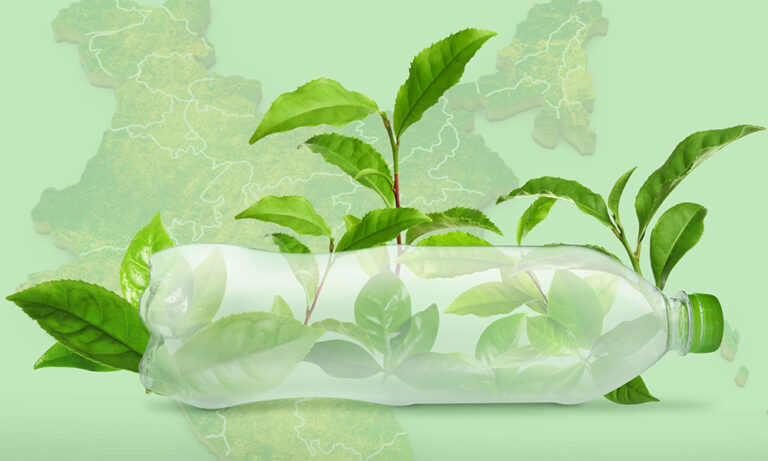The future of sustainable living hinges on innovation, and one of the most transformative materials driving that change is bioplastics. As the world grapples with the consequences of excessive plastic usage—from marine pollution to overflowing landfills—bioplastics offer a compelling alternative: materials that serve the same purpose as conventional plastic, but with a far smaller environmental footprint.
Among the nations pioneering this shift, India stands out as a rising force. Fueled by its vast agricultural resources, growing environmental awareness, and increasing demand for eco-friendly alternatives, Indian companies are emerging as key players in the global green economy. At the heart of this revolution are sustainable bioplastics suppliers in India, who are playing a pivotal role in shaping the future of materials, production, and consumer habits.
Understanding Bioplastics: A Green Innovation
Bioplastics are derived from renewable biomass sources such as corn starch, sugarcane, cassava, and even algae. Unlike traditional plastics made from fossil fuels, bioplastics are designed to be biodegradable or compostable, reducing their long-term impact on the environment.
These materials can be engineered to match the strength, flexibility, and functionality of petroleum-based plastics, making them a viable substitute across multiple industries—from packaging and textiles to agriculture and electronics.
But the real game-changer is not just the switch from one material to another—it’s the commitment to an entirely new approach to production, consumption, and disposal. This is where India’s sustainability-driven manufacturing sector comes in.
India’s Commitment to Bioplastic Innovation
India has witnessed a surge in green startups and established manufacturers investing in research and development of bioplastics. The government’s nationwide ban on single-use plastics, combined with a rising eco-conscious consumer base, has created fertile ground for innovation.
Indian manufacturers are no longer just meeting local demand—they’re exporting eco-friendly materials and finished bioplastic products to markets across Europe, the US, and Southeast Asia. This success is driven by a powerful combination of cost-effective production, resource availability, and technological expertise.
Sustainable bioplastics suppliers in India are tapping into the country’s abundance of agricultural waste to produce raw materials for bioplastics. Corn, sugarcane bagasse, and rice husks are being turned into biodegradable packaging, disposable tableware, agricultural films, and more. These innovations not only reduce plastic dependency but also create value from agricultural by-products that would otherwise go to waste.
Key Sectors Benefiting from Bioplastic Adoption
India’s bioplastics boom is benefiting multiple industries:
- Packaging Industry: With e-commerce and retail expanding rapidly, the demand for eco-friendly packaging is at an all-time high. Indian companies are now producing bioplastic wraps, pouches, and containers that are durable, printable, and compostable.
- Food & Beverage: Restaurants and food brands are replacing polystyrene trays and PET containers with plant-based alternatives. This not only meets customer expectations for sustainability but also helps brands comply with food safety and plastic ban regulations.
- Agriculture: Biodegradable mulch films and plant pots made from bioplastics are gaining traction in Indian agriculture. These products enrich the soil as they decompose, eliminating the need for plastic cleanup and improving land health.
- Healthcare: Bioplastic syringes, gloves, and packaging are being tested and introduced in medical settings where hygiene is crucial but sustainability is often neglected.
Challenges on the Road Ahead
Despite the progress, the journey is not without obstacles. Bioplastics remain more expensive to produce than traditional plastics, limiting accessibility for smaller businesses. Infrastructure for composting or industrial degradation is still lacking in many parts of the country, leading to improper disposal.
Education and awareness are also critical. Consumers often confuse “biodegradable” with “safe to litter,” which can result in misplaced waste. Indian manufacturers, along with policymakers, are working to bridge these gaps through certification standards, clear labeling, and awareness campaigns.
India’s Competitive Edge in the Global Market
One of India’s strongest advantages in the bioplastics space is its low-cost manufacturing ecosystem combined with a high level of customization and innovation. Unlike other countries where bioplastic production might be limited to niche products, Indian manufacturers are offering scalable, affordable, and diverse solutions.
Moreover, international interest is growing rapidly. Countries with stringent plastic bans are turning to India for sourcing high-quality, sustainable alternatives. In this export-oriented model, Indian suppliers not only help global businesses meet their environmental goals but also boost the domestic economy through green growth.
Leading sustainable bioplastics suppliers in India are partnering with global corporations, research institutions, and NGOs to expand their capabilities and improve their technology. With continued investment and policy support, India is poised to become a global hub for bioplastic innovation in the coming decade.
The Path Forward: Circular and Sustainable
As the bioplastics industry evolves, the next step is to create a fully circular system—where materials are designed to return safely to the earth without polluting ecosystems. Indian companies are already exploring this through closed-loop manufacturing, smart packaging solutions, and integration with composting infrastructure.
In tandem with these efforts, startups and SMEs are contributing to the democratization of bioplastic usage by offering affordable, accessible products for rural and urban markets alike. This grassroots engagement ensures that sustainability isn’t just a luxury for elite consumers, but a shared responsibility across society.
Final Thoughts
The future of bioplastics is not only bright—it’s necessary. As the world pushes towards sustainable development goals, countries like India are proving that large-scale change is possible with the right blend of innovation, policy, and purpose.
By embracing agricultural by-products, investing in clean technology, and fostering global partnerships, Indian companies are leading the charge toward a plastic-free future. Thanks to the dedication of sustainable bioplastics suppliers in India, the dream of a greener, cleaner tomorrow is no longer a distant vision—it’s happening now.

